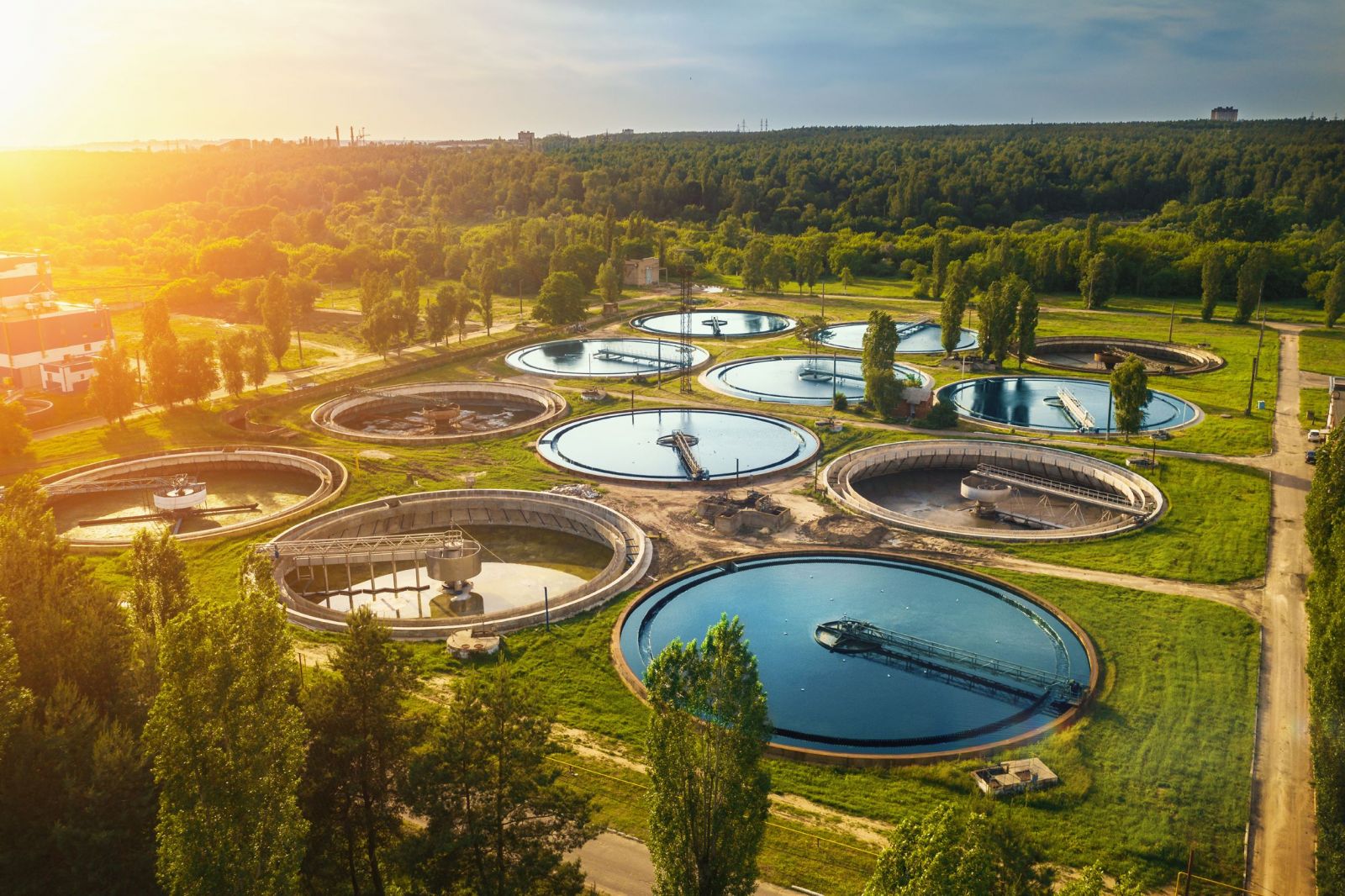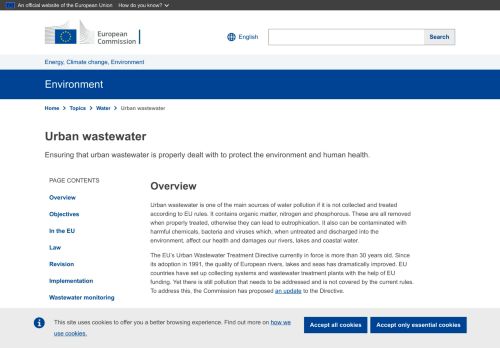
Voice of the Danube
It has been in the making for quite a while now, and in fact, preliminary preparations may already be underway here and there. But now there is official political agreement on the revised European Wastewater Treatment Directive, promising more thorough and cost-effective urban wastewater management, improved protection from harmful discharges of urban wastewater, and cleaner rivers, lakes, groundwater and seas all around Europe.
On 29 January 2024, the European Commission reported the closure of the provisional political agreement between the European Parliament and the Council on the Commission's proposal revising the Urban Wastewater Treatment Directive. The European Parliament and the Council will now formally have to adopt the new Directive, and subsequently, 20 days after its publication in the Official Journal of the EU, it will enter into force, requiring the Member States to start the implementation process to have first updated national implementation programs ready by 2026.
The revised Urban Wastewater Treatment Directive is a key element of the European Green Deal and the Zero Pollution Action Plan. It is a comprehensive update of the original 1991 Directive which has been successfully implemented across all Member States. Now, three decades later, a general overhaul was due, taking into account new sources of urban pollution and new pollutants - think microplastics, and the need for energy neutrality.
The new Directive will have considerably extended reach, as it will also cover smaller agglomerations from 1,000 inhabitants upwards. It will require the removal of more nutrients and micropollutants from urban wastewater, particularly those coming from toxic pharmaceuticals and cosmetics. It will introduce systematic monitoring of microplastics in the inlets and outlets of urban wastewater treatment plants as well as in the sludge. Additional monitoring of ‘forever chemicals' such as PFAS will improve existing knowledge on the dissemination of these chemicals through urban wastewaters. In addition, key health-related parameters will be regularly monitored in urban wastewaters, including anti-microbial resistance or CoV-SARS-19 in case of a pandemic.
For the first time, the "polluter pays" principle will be introduced in the water sector in a specific way: the most polluting industries, pharmaceuticals and cosmetics, will be required to pay the bigger share of the cost for micropollutant removal, limiting the cost of the new requirements for citizens.
The new measures take into account the changing climate conditions and set clear obligations for Member States to better deal with heavy rainfall events. The recent events in various Member States have shown that the rainfall regime is changing drastically, both in summer and in winter, and urgent action has to be taken to ensure the adaptation of the urban wastewater sector to this new reality. Member States will have to systematically develop integrated management plans to deal with storm waters in large cities, and also in smaller cities with elevated risk profiles.
Furthermore, the revised Directive will contribute to the circular economy by improving the quality of sludge and treated wastewater, allowing for more reuse in agriculture and ensuring that valuable resources are not lost.
Last, but certainly not least, it will ensure access to sanitation in public spaces for the two million most vulnerable and marginalized people in the EU. This is in line with requirements set under the recently adopted revised Drinking Water Directive, which requires access to water for all.
All in all, the agreement reached on 29 January promises a wide range of sometimes dramatic improvements that are well worth the efforts that will soon be necessary across the Union. IAWD is keen to support the challenging process of implementation in the Danube region with the newly established Committee on Wastewater Management.
Virginijus Sinkevičius, Commissioner for Environment, Oceans and Fisheries comments : “With the agreement reached today, we ensure not only cleaner water for all Europeans but so much more – better access to sanitation, implementation of the polluter pays principle and energy autonomy. These changes will completely revolutionize the sector and make it more resilient for decades to come.”
Urban wastewater - European Commission
Ensuring that urban wastewater is properly dealt with to protect the environment and human health.
